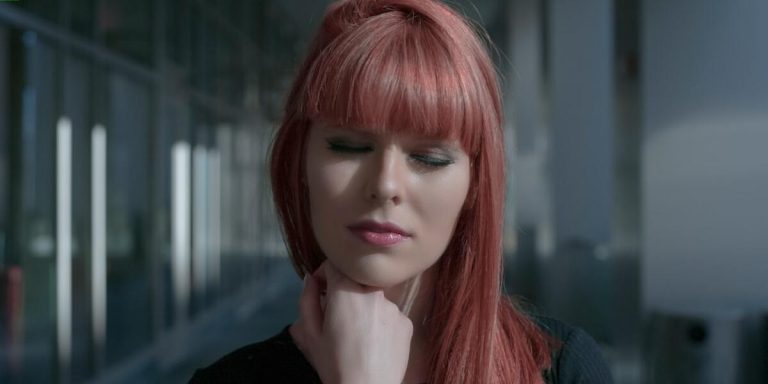Hair Regrowth After Menopause: Understanding the Journey and Possible Solutions
Many women experience noticeable hair loss during the post-menopausal period. The term “hair regrowth after menopause” has become a common google search among these women searching for ways to renew their once vibrant manes. It’s crucial, however, to understand that this occurrence is not out of the norm but part and parcel of hormonal changes that accompany this phase in life.
In our journey today, we will delve into why hair falls occur more frequently during menopause and how it affects your overall hair health. More importantly, we’ll explore possible solutions for promoting healthier growth patterns – demystifying the complexities associated with “hair regrowth after menopause”. This way you can better comprehend what happens to your tresses as age advances while gaining insight on viable measures towards maintaining lustrous locks even past midlife.
Did you know?
Did you know? Post-menopausal women can experience hair regrowth due to an increase in testosterone, which can convert into DHT (Dihydrotestosterone), a hormone linked with hair growth and thickness.
Understanding Hair Regrowth After Menopause
The journey through menopause is a significant phase in every woman’s life, entailing numerous physical and emotional changes. One of the most noticeable transformations can be hair thinning or even loss; however, it isn’t an inevitable plight you must bear indefinitely. Hair regrowth after menopause is entirely plausible with modern advances.
Understanding how hormonal fluctuations during and post-menopause impact our locks is fundamental to battling this condition effectively. Estrogen and progesterone levels significantly decline while undergoing menopausal transition leading to slower hair growth and weaker follicles on your scalp, resulting in thinner or sparse coverage over time.
Unlike male pattern baldness that typically causes permanent damage in areas like crown balding or receding hairlines where follicles die completely, female pattern thinning mainly results from hormonal shifts and doesn’t entirely kill off follicles. The correct stimulation through topical treatments can potentially revive these follicles. Such treatments include:
- Minoxidil (approved for women)
- Low-Level Laser Therapy helmets
- PRP injections
Additionally, nutritional supplements containing Biotin, Vitamin D3, and other nutrients support the optimal health and regeneration capacity of existing follicle cells.
The Role of Hormones in Post-Menopausal Hair Loss
The shift in hormonal balance that women experience after menopause often plays a significant part in hair thinning and loss. It’s no secret – hormones control a plethora of body functions, including the growth cycle of your tresses.
As you reach menopause, estrogen levels take a dip while androgens rise. This can disrupt normal hair growth patterns leading to thinner strands or complete fallout. Now let’s break down this complex relationship between post-menopausal phase and hair regrowth better.
Estrogen is usually considered the ‘hair-friendly’ hormone for women; it helps elongate the growing (anagen) stage of your follicles promoting longer locks. A drop in its level might result in shorter anagen phases reducing overall volume over time – contributing against “hair regrowth”.
Effective Treatments for Stimulating Hair Growth Post-Menopause
Menopause significantly affects every woman, altering the normal functioning of their bodies and most vitally affecting hair growth. With a decline in estrogen levels, many women start experiencing thinning hair or loss. However, it’s essential to note that reversing this situation is possible with effective treatments for stimulating hair regrowth post-menopause.
The first step towards achieving successful recovery lies in adopting a balanced diet rich in proteins and vitamins required for healthy follicles. Increasing your intake of biotin-rich foods such as eggs, nuts and whole grains could work wonders on your strands.
Secondly, various topical applications have proven beneficial when combating menopausal hair loss issues. Products containing Minoxidil are known to boost strand density while also slowing down the rate at which you lose more hairs during menopause.
One shouldn’t overlook natural remedies either – options like using nourishing oils can not only catalyze new growth but also provide needed strength to existing locks preventing further damage. Regular massages with coconut or argan oil mixed with lavender or rosemary essential oils improve scalp circulation fast-tracking your journey towards voluminous tresses even after midlife transition.
Next up: hormone replacement therapy (HRT). This medical treatment involves reintroducing hormones into one’s system artificially thereby facilitating functions previously linked directly to these chemicals – yes including promoting lively lush crowns on heads!
Lifestyle and Nutritional Strategies for Enhancing Hair Regrowth
The gradual thinning and loss of hair is a harsh reality that most women face following menopause. But, it doesn’t have to be an unchangeable fate. Hair regrowth after menopause can be achieved with the help of certain lifestyle changes and strategic nutritional implementation.
Promote hair growth post-menopause by enhancing your dietary intake to counteract hormonal imbalances affecting follicle activity. Include protein-rich foods in your diet for necessary hair health nutrients, as hair consists mainly of protein called keratin. Incorporate these foods:
- Eggs
- Fish
- Lean meat
Also, add omega-3 fatty acid-rich items like salmon and almonds to nourish scalp hygiene and bring an authentic shine to your strands.
An active body promotes circulation on every level – skin included! Regular physical activities can bolster healthy blood flow hence supplying essential nutrients directly towards our head’s crown: our hairs’ root source itself.
Restructuring one’s daily routine by incorporating moderate exercise routines could improve overall health while boosting hormone balance after menopausal phase which ultimately helps maintain lush locks reflecting their inner glow.
In addition, stress management strategies need equal attention considering its impact on exacerbating hair shedding particularly during this transition period when females encounter drastic physiological shifts including sudden fallouts from excessive worry loadings on top already existing symptoms caused predominantly around aging process leading imbalance between estrogen dihydrotestosterone (DHT).
Essential Vitamins and Minerals to Support Healthy New Growth
The journey to hair regrowth after menopause can be challenging, but strategic lifestyle and nutritional approaches can make a significant difference. One such strategy is the inclusion of essential vitamins and minerals in your diet that support healthy new growth.
Starting with Vitamin A, it’s essentially important for cell growth – including hair, which happens to be the fastest growing tissue in our body. Severe deficiencies may lead to dry scalp issues or even loss off hair – aspects none of us want ever.
One cannot ignore Vitamin C too when addressing comprehensive nutrition strategies revolving around “hair-regrowth”. It aids collagen production—a protein helping strengthen your mane preventing age-related damage while its antioxidant properties shield you against oxidative stress impacting follicle cells adversely.
Vitamin D’s pivotal role must also find mention here—it creates new pores where fresh strands grow from! Most folks often lack enough; hence supplementations could prove beneficial. Remember emerging studies linking deficient levels with alopecia?
Speaking about minerals now—iron is fundamental as blood carries necessary oxygen via red blood cells making this element incredibly vital towards ensuring sprightly locks!
Impact of Stress Management on Post-Menopausal Hair Recovery
Firstly, it is vital to note how stress interrupts normal body processes, including your hormonal balance—something already fluctuating during menopause. High levels of cortisol, the ‘stress hormone’, ties directly into thinning or baldness patterns as they disturb your natural hair growth cycle.
A regular practice of relaxation techniques can be beneficial for controlling such onsets of acute stress reactions that trigger harmful biochemical responses affecting follicular health adversely. Methods like yoga, deep breathing exercises or mindfulness meditation have shown promising outcomes in maintaining optimal mental peace and improving general wellness.
The importance of quality sleep cannot be overemphasized when talking about effective strategies against excessive tension accumulation – seven-to-eight hours per night seems ideal for many individuals striving towards betterment in their overall endocrine functionality which indirectly assists with improved scalp wellbeing too!
Adopting a wholesome diet rich in organic fruits & vegetables not only fortifies you internally helping manage daily life rigors but also nourishes each strand from root-tip by providing essential micronutrients expediently aiding recovery mechanisms following stressful episodes impacting your tresses.
Innovations in Hair Restoration for Post-Menopausal Women
Advancements in the field of hair regrowth have not left post-menopausal women behind. Hair loss following menopause is a common concern, with hormonal changes often leading to thinning locks or bald patches. Thankfully, cutting edge research and technology are driving new innovations that specifically target this demographic’s needs.
One such innovation employs stem cells for targeted treatment – therapy born out from extensive genetic analysis on cellular behavior during various stages of human life, including post-menopause. This treatment method revitalizes dormant follicles, stimulating them into producing healthy strands once again. The result?
Not just restored confidence but also the joy of flaunting a fuller mane even after experiencing menopausal hair loss.
Another notable advancement comes from nanotechnology: tiny protein particles infused with active compounds proven effective at encouraging natural hair growth cycle rhythms disrupted by age and hormone imbalances experienced in menopause phase . These nanoparticles penetrate deep into scalp layers without causing harm because they’re so microscopic—enabling high-precision delivery methods making it easier than ever before for women seeking solutions to regain their treasured tresses.
Breakthroughs in Topical Treatments Targeting Thinning Areas
Breakthroughs in topical treatments are transforming the narrative around hair regrowth after menopause. In recent years, scientists have been successfully developing innovative products that specifically aim at enhancing hair growth in areas experiencing thinning or balding as a result of hormonal shifts during menopause.
One significant advancement is Minoxidil-based solutions such as Rogaine for women. This over-the-counter solution revitalizes shrunken follicles and extends each follicle’s growth phase to aid fuller, thicker hair growth. Regular use has shown positive results amongst post-menopausal women seeking to increase their scalp coverage.
Next on our list is Redensyl – an active ingredient found within numerous specialized serums designed with female biology in mind. It acts by targeting stem cells and fibroblasts from the dermal papilla to stimulate natural hair regrowth significantly, even amidst reduced estrogen levels common during menopause.
Another breakthrough includes Spironolactone-topical creams usually prescribed by dermatologists due to its potency against genetic-induced alopecia—which typically increases after menopause—by blocking male hormones known for causing said condition without affecting other body functions unlike oral counterparts; thus reducing side effects dramatically while still providing desired outcomes: healthier strands replete fullness former glory intact!
Laser Therapy: A Modern Approach to Promoting Scalp Health
Undeniably, the upswing in technology has revolutionized many aspects of our lives – even how we combat hair loss. A prominent example is laser therapy for scalp health and promoting “hair regrowth after menopause”.
This breakthrough involves low-level laser beams targeted at your scalp to stimulate follicle growth. The light enhances circulation, bringing nourishment straight where it’s needed: directly into each cell that makes a strand of hair.
So why consider question if you should use this remedy or not?
For starters, studies show significant improvements with consistent usage within three months. This means thicker strands and fuller coverage faster than most topical treatments offer! That’s definitely one tick on the board towards achieving robust rejuvenation.
Secondly, while traditional methods often involve potential side-effects such as skin irritation or hormonal imbalance; Laser therapy poses virtually none of these risks since it uses non-invasive techniques aimed purely at enhancing cellular energy production.
Last but certainly not least is convenience; No longer do you need frequent salon visits when devices can be purchased over-the-counter for home administration!
Conclusion
In conclusion, hair regrowth after menopause is not just a possibility but can be your reality. With the right treatment plan in place, you won’t have to live with thinning or balding strands that often accompany this significant period of life change. Remember, hair loss during this phase is common and universal; what’s important is understanding how it works and applying our knowledge to counteract its effects.
We invite you to explore other sections on our website dedicated exclusively to ‘Hair Regrowth’. Therein lies a reservoir of information specially designed for those seeking solutions they could incorporate into their routines effectively. After all, every woman deserves luscious locks at any age – yes even after menopause!







